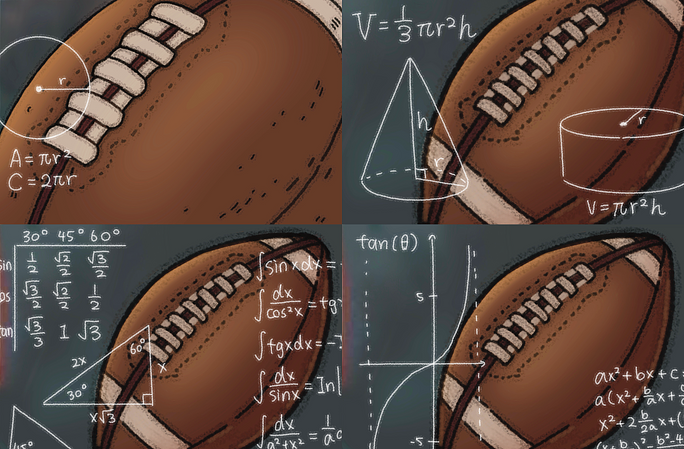Growing up in the 2010s, football fans were exposed to the reign of coaches like Pete Caroll, Nick Saban, and Bill Belicheck. They represented a dying breed of coaches who kept their style of play away from the sway of analytics. Analytics in the context of football represent how mathematicians find the best possible plays to call in specific situations.
Since the popularization of the blockbuster film “Moneyball” which showed how analytic strategies are used in baseball, every sport has followed in its footsteps to take a certain amount of analytics under its wing.
Football is seen as the one sport in which analytics can be shaky and oftentimes risky –– even to the trained eye. However, because of the recent retirement of legendary coaches Nick Saban, Pete Carrol and Bill Belicheck, senior and football enthusiast Avi Verma said the it’s like like NFL teams will lean toward becoming more analytics-oriented. This also raises the potential to see analytics become the central backbone for new coaches to build upon.
“Analytics is everything now –– the type of offense and defense you run, and how you exploit matchups and beat the unexpected needs analytics,” Verma said. “You can have great talent, but in order to efficiently use it, you need to use analytics too.”
Verma also said the now-retired Bellicheck doesn’t fit into the current scheme of the NFL, even if he was to be picked up by the Atlanta Falcons as the rumors say.
“Even if he was hired and had access to the elite talent the Falcons have, his lack of analytics usage would not allow him to be as good as other teams,” Verma said.
Verma also said he thinks the power of the head coach position will start to decrease and turn into more of a public figure, as opposed to a play caller.
“When some players are so skilled, they can eventually reach a point where they impact play calling like how we see it in the NBA today,” Verma said. “I think that we are going to see more of this in the NFL, and the coach will become more of a persona. ”
Senior Beau Revenaugh, though, said he thinks the opposite will occur. Revenaugh said he thinks the retirement of veteran coaches will cause analytics to play a smaller role in the future of football.
“I believe that we are going to see a version of football in which offenses are geared toward more scoring, and defenses will be weaker,” Revenaugh said. “Football (might) lose a lot of the analytics just due to this.”
Revenaugh also said a team’s use of analytics will depend on their coach’s strengths.
“I think that the role of analytics will play a varied role depending on how good coaches are within their scheme,” Revenaugh said. “Some coaches who are play callers might make it a smaller part of their system just because play calling is such a human concept.”
History teacher Stephen Foug said football is far too analytics-based at times and the emotional connection a coach can have to his team is a much more meaningful factor in being a good coach.
“What interests me is the emotion of the game and the rollercoaster,” Foug said. “You can analyze Dan Campbell’s decisions against the Niners and maybe you can pick at something.”
Foug also said coaches are trying to develop an attitude and a style of play when they make decisions that go against analytics.
“Coaches are trying to establish an ethos there and an attitude,” Foug said. “That is such a big part of the sport, and analytics should come in as tiebreakers when you don’t know what to do.”


